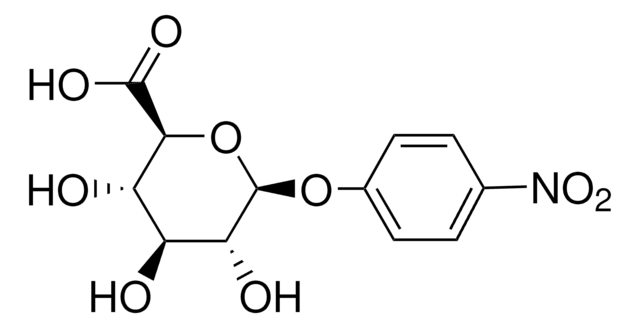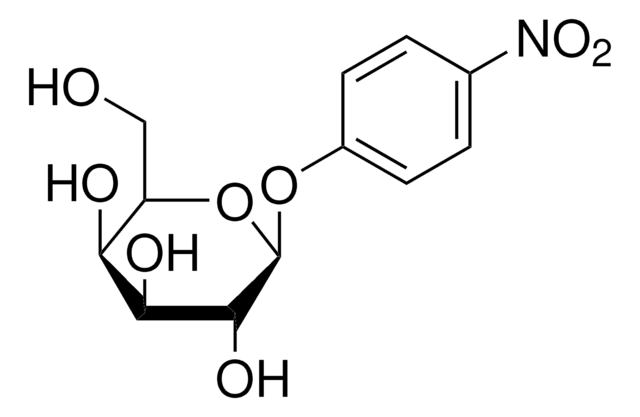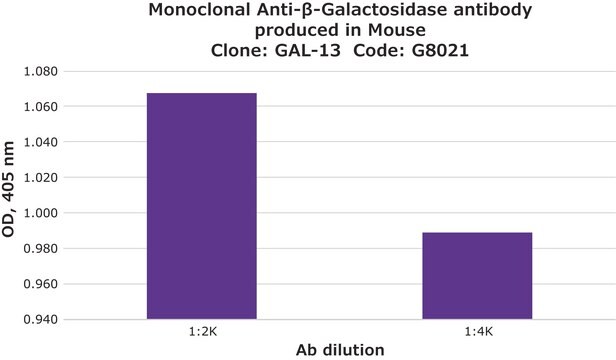73677
4-Nitrophenyl β-D-glucuronide
β-glucuronidase substrate, chromogenic, ≥99.0% (TLC), powder or crystals, suitable as substrate for β-glucuronidase test
Synonym(s):
4-Nitrophenyl-β-D-glucopyranosiduronic acid, PNPG
About This Item
Recommended Products
product name
4-Nitrophenyl β-D-glucuronide, ≥99.0% (TLC)
Assay
≥99.0% (TLC)
form
powder or crystals
optical activity
[α]20/D −102±3°, c = 1% in ethanol
impurities
≤0.05% free 4-nitrophenol
≤7% water
solubility
H2O: 0.1 g/mL, clear, faintly yellow
suitability
suitable as substrate for β-glucuronidase test
storage temp.
−20°C
SMILES string
O[C@@H]1[C@@H](O)[C@@H](O[C@@H]([C@H]1O)C(O)=O)Oc2ccc(cc2)[N+]([O-])=O
InChI
1S/C12H13NO9/c14-7-8(15)10(11(17)18)22-12(9(7)16)21-6-3-1-5(2-4-6)13(19)20/h1-4,7-10,12,14-16H,(H,17,18)/t7-,8-,9+,10-,12+/m0/s1
InChI key
QSUILVWOWLUOEU-GOVZDWNOSA-N
Looking for similar products? Visit Product Comparison Guide
Application
Substrates
Storage Class Code
11 - Combustible Solids
WGK
WGK 3
Flash Point(F)
Not applicable
Flash Point(C)
Not applicable
Personal Protective Equipment
Certificates of Analysis (COA)
Search for Certificates of Analysis (COA) by entering the products Lot/Batch Number. Lot and Batch Numbers can be found on a product’s label following the words ‘Lot’ or ‘Batch’.
Already Own This Product?
Find documentation for the products that you have recently purchased in the Document Library.
Customers Also Viewed
Our team of scientists has experience in all areas of research including Life Science, Material Science, Chemical Synthesis, Chromatography, Analytical and many others.
Contact Technical Service












